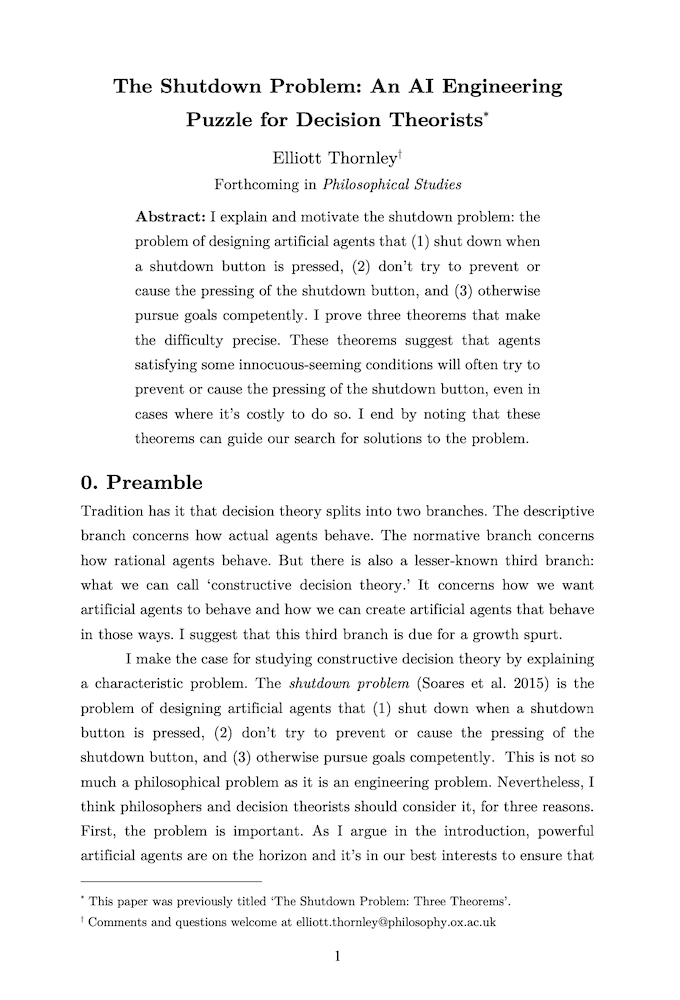The Shutdown Problem: An AI Engineering Puzzle for Decision Theorists
Elliott Thornley (Global Priorities Institute, University of Oxford)
GPI Working Paper No. 10-2024, forthcoming in Philosophical Studies
I explain and motivate the shutdown problem: the problem of designing artificial agents that (1) shut down when a shutdown button is pressed, (2) don’t try to prevent or cause the pressing of the shutdown button, and (3) otherwise pursue goals competently. I prove three theorems that make the difficulty precise. These theorems suggest that agents satisfying some innocuous-seeming conditions will often try to prevent or cause the pressing of the shutdown button, even in cases where it’s costly to do so. I end by noting that these theorems can guide our search for solutions to the problem.
Other working papers
Longtermism, aggregation, and catastrophic risk – Emma J. Curran (University of Cambridge)
Advocates of longtermism point out that interventions which focus on improving the prospects of people in the very far future will, in expectation, bring about a significant amount of good. Indeed, in expectation, such long-term interventions bring about far more good than their short-term counterparts. As such, longtermists claim we have compelling moral reason to prefer long-term interventions. …
Critical-set views, biographical identity, and the long term – Elliott Thornley (Global Priorities Institute, University of Oxford)
Critical-set views avoid the Repugnant Conclusion by subtracting some constant from the welfare score of each life in a population. These views are thus sensitive to facts about biographical identity: identity between lives. In this paper, I argue that questions of biographical identity give us reason to reject critical-set views and embrace the total view. I end with a practical implication. If we shift our credences towards the total view, we should also shift our efforts towards ensuring that humanity survives for the long term.
- « Previous
- 1
- …
- 35
- 36
- 37

